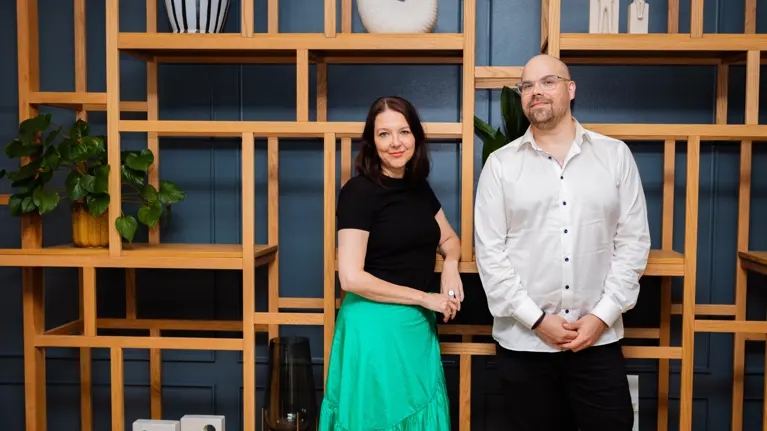
Beyond carbon footprint – how Flow Festival is using data to reduce environmental impact
Flow Festival is breaking new ground in how big events can be organized more sustainably. In our Data Insiders podcast, we discover how this was made possible – and what others can learn from it.
What does it mean for big events to be environmentally responsible? This is a question that the organizers of Flow Festival in Finland have constantly challenged themselves with.
Since its inception in 2004, Flow has catered to a crowd that’s more mindful than average: young adults mostly hailing from the Helsinki Metropolitan Area. This has presented the festival with a unique opportunity to become a forerunner in building an ecologically and socially conscious brand for an audience that appreciates it.
One recent experiment in this area has been a carbon and material footprint budgeting tool created in collaboration with D-Mat and Tietoevry Create. The tool allows Flow to evaluate the decisions made during the planning of the festival from the point of view of ecological impact – and strive to optimize them better each year.
For our Data Insiders podcast, we invited Flow Festival’s Head of Sales and Marketing Vilja Grotenfelt, and Tietoevry Create’s Head of Growth Enablement Juha Kurppa to discuss the creative ways in which data can be used to lower the strain on the environment. The conversation covered Flow’s initiatives over the years and how the new technical solutions have changed the way the festival is operated.
Responsibility at every level
In 2022, Flow Festival reached its highest-ever number of visitors with 90 000 attendees. With some of the most successful artists in the world headlining the festival’s 20th anniversary this year, organizing the event is a sizeable operation made possible by over 2000 employees and volunteers. This means the stakes are high from the consciousness perspective as well.
Luckily, even though the sizeable festival takes place in the heart of Helsinki, it enjoys a good reputation amongst the city-dwellers. A big reason for this is the audience, which Grotenfelt describes as diverse, well-behaved and highly educated.
“Sustainability, love for their home city, and a sense of community are important for our audience”, she explains.
The unique crowd has played a part in how eco-friendliness has been on Flow’s agenda from the start. Every aspect of the festival has been designed with this in mind, including easy access with public transport and bicycles – and even the food available in the area.
“We made the decision to exclude meat and poultry from our menus two years ago”, Grotenfelt notes.
Additionally, all restaurants are required to have at least one vegan dish. As a result, over 50% of all food sold at the festival was fully plant-based in 2023.
Taking it to the next level: data-based planning
Flow Festival has been calculating their carbon footprint since 2009, developing their methods a bit further each year. When Covid hit in 2020, the festival management decided to use the extra time to come up with even more holistic ways of taking the environment into account.
“We realized that besides the carbon footprint the focus should also be on the use of materials”, Grotenfelt reflects.
Teaming up with the environment research company D-Mat, Flow was able to create a comprehensive understanding of the ecological effect of the various aspects of the event from logistics to stage production. This data was then used as the basis of a footprint budgeting tool created with Tietoevry Create.
“The idea is that you can budget your carbon and material footprint the same way you budget money – you have limited resources and make the most of them”, Grotenfelt elaborates.
Kurppa goes into more detail on how the tool works, and how it aids the production managers in their daily decisions.
“The decision-makers need to have visibility to how much of the environmental budget they’ve spent and try to reduce the amount for each subsequent event.”
The tool is now being used by the Flow employees in both planning and reporting. Kurppa reveals that the tool is being peer-reviewed by test users from other festivals – and might eventually be released for a wider audience.
In the meantime, what could other event organizers learn from Flow’s example?
“Work with professionals to create a broader understanding of your ecological footprint”, Grotenfelt suggests. “For us too, it’s been a step-by-step project. The important thing is to start from somewhere and build it from there.”

Data changes the world – but does your company take full advantage of it? Data Insiders is a podcast where we seek answers to one question: how can data help us all do better business? The podcast addresses the trends and phenomena around this hot topic in an understandable and interesting way. Together with our guests, we share knowledge, offer collegial support and reveal the truth behind hype and buzzwords.

Tietoevry office: Espoo, Finland
Started at Tietoevry: 2016
Education: Executive MBA from Aalto University
Fun-fact: His parents have worked at Tietoevry for a total of over 70 years



